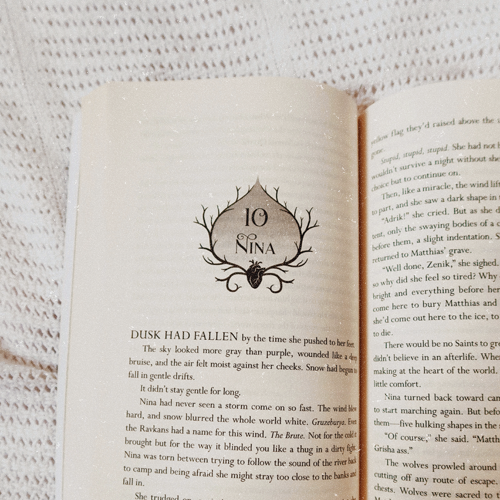Writing Inspiration: Greek Mythology (Part 3)
/@ dreaming by dusk
Greek mythology is my favourite source of inspiration for creative writing (as you might’ve guessed by now). One reason why is that the characters in Greek mythology are unforgivably human and complex.
Divine or mortal, every man and woman has their flaws and strengths; and thanks to a contemporary fascination with classical studies, a lot more people are writing about the gods, heroes, and heroines in a modern context.
How many versions of Hades and Persephone have you heard/read?
There is a popular comic on WebToon called “Lore Olympus” that’s inspired by their myth and love story. Growing up, I also saw a lot of mythology-inspired graphics and poetry on Tumblr.
Today, I thought I’d talk about a couple of my favourite characters from Greek mythology (not myths, this time) and how each of them can provide a canvas for a character in your creative writing.
I’ll be writing a lot of my own feelings about these characters but I encourage you to paint your own picture of them as well. If you’re seeking creative writing inspiration – or are just fond of classical antiquity like me – stay here and read the rest of this post.
Hestia
She is the goddess of the hearth and home, and sister to Zeus, Hades, Poseidon, Hera and Demeter. A lot of people forget she’s one of the twelve Olympians. The fact that there aren’t a lot of stories about her is interesting. There are seldom accounts of this goddess leaving Olympus or intervening with the lives of mortals as her siblings do. It paints a mysterious yet peaceful picture of her.
As a fictional character, Hestia is genuine and kind. She’s a solitary figure who doesn’t like conflict. She’s an introverted, quiet woman who likes to keep out of the spotlight. She’s powerful and privileged but incredibly humbled by her circumstances and luck and treats others the way she would like to be treated. This is how I would write her if she was a character in my story. She is also someone that I would associate very heavily with cottagecore, homebody, or hygge.
Medusa
She is one of the Gorgons, sister to Stheno and Euryale. She was condemned to have venomous snakes for hair and eyes that turn the people she looks at into stone. We all know a version of this story. In the most prominent one, Medusa was punished by the goddess Athena for being assaulted by the god Poseidon in her temple. In classical art and literature, she is depicted as a monstress and is a villainous figure in the myth of Perseus.
I see her differently. I would write Medusa as an innocent victim who has suffered and survived through trauma. But she refuses to let it conquer her. She is strong and still allows herself to be soft; to be who she was before tragedy struck her. I feel like she would cut through anyone with a single look. Men would be afraid to catcall her on the street. She’d do anything to take back her power. I feel like she and Artemis would be good friends, social justice warriors leading the charge!
Orpheus
He is a mortal man skilled with a lyre, regarded to be the best musician in Greek mythology. He almost succeeded in using his music to charm Hades and Persephone into allowing him to take the soul of his beloved out of the Underworld. He is not an archaic hero to match the likes of Achilles or Heracles, but he a different strength. Dare I say, he is the original bard.
To me, Orpheus is a passionate, poetic, romantic man. He channels every emotion, good or bad, into his music. He is adventurous and selfless and takes risks for the things he cares about the most. But that also makes him self-destructive and dangerous. I mean, his music is what leads to his brutal death in the end.
Helen
We all know of her. She is the Queen of Sparta. The beautiful woman that started a war and led the Greeks to sack the city of Troy. What most people don’t know is that there is another account of the story. The one where she didn’t love Paris but was captured by him. In the same way that Zeus pursued many women against their will. There is also the version where it was not Helen that went to Troy; instead it was a copy of her forged from the clouds by the gods to enact the great war.
I would write her as a woman objectified and mistreated for her physical appearance, as countless women are every day, in every place. She is poised, intelligent, and every bit as dangerous as her husband Menelaus. She is someone that people underestimate because all they see is a pretty face. As a result, they don’t think to look further than that.
Atlas
After the rise of the Olympians, he was condemned to hold up the world on his back for all eternity; crushing under the weight of every forest, ocean, mountain, and city. As such, he is related to astronomy and the celestial sphere. In his time alone, he has had eons to philosophize and contemplate the world at his fingertips.
I like to see Atlas as a wise man who knows many things about the world. He hates his punishment but endures it because to let go would be to destroy the world. He bears a lot of responsibility and liability. He looks after others, seeking nothing in return.
Lycaon
If I’m being honest, he is one of my favourite characters from Greek mythology. Once a King of Arcadia, he is transformed into a wolf by king of the gods Zeus as a punishment for serving up one of his sons to the gods. In accounts of Lycaon, he is either presented as a devout follower of Zeus or a mortal who blasphemes the gods.
As a fictional character, I think that Lycaon is cruel and cunning. He has no respect for life and has no conscience or moral qualms about hurting others. Whether a lover or hater of the gods, he is not someone to take lightly. His actions express this. He’d be great inspiration for writing a villain.
Ariadne
She is a princess who helps Theseus defeat the minotaur. But once she sails away with him, she is discarded on a beach and left behind. She is taken advantage of, in a much lighter way compared to other women in mythology. I started writing a short story about this once.
To me, Ariadne is naïve, innocent, and still intelligent. She’s lived her whole life in one place, surrounded by the same people, that she doesn’t know what to expect when something new enters her life. She’s human because she makes mistakes and trusts the wrong people; and she’s determined not to let it happen again. She will never make foolish choices again for love.
Charon
I still think he is the original grim reaper; ferrying the souls of the dead across the river Styx and into the Underworld. Like Hestia, he’s another character who is painted in a mysterious light. He performs his duty and does nothing more. Death never takes a break and neither does he.
As a fictional character, he’s learned how to enjoy his line of work. He’s got a good ear for listening and a good tongue for speaking. He talks to the souls of the dead, his only companions in a series of brief moments. He hears about their lives and calms and coaxes them into the afterlife. His work is what gives him a sense of purpose.
These are some of my favourite characters from Greek mythology, and these are the ways that I use classical studies as a major source of inspiration when I am creative writing. Each character has traits, strengths and weaknesses, ambitions and duties. They are complex characters and a great starting point for writing about your own characters.
I hope you found these descriptions helpful for your writing.
Best of luck!













